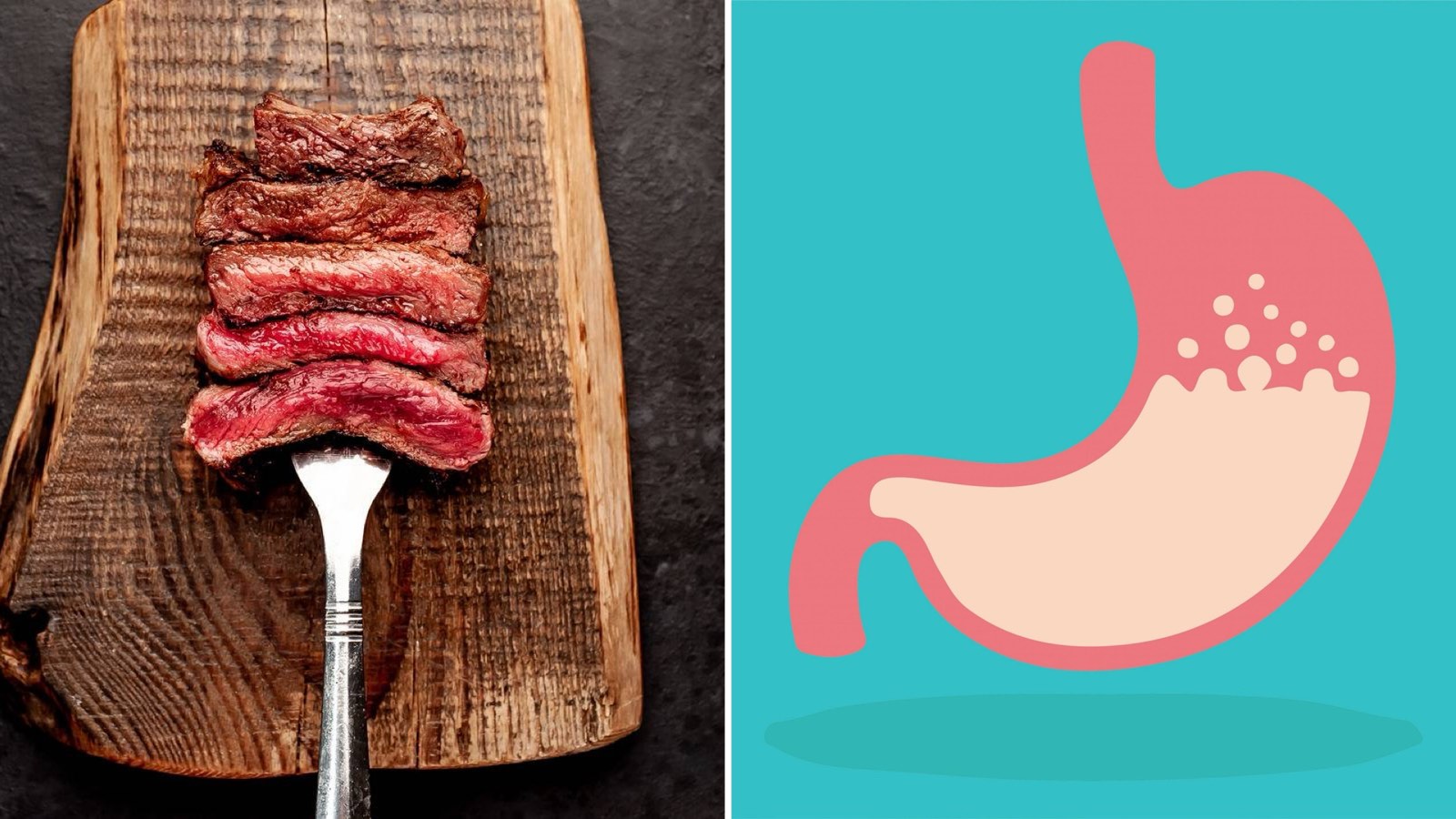All things considered, it usually takes 24 to 72 hours for beef to fully digest, though this varies from person to person. Beef cuts (lean cuts may digest more quickly than fatty cuts), cooking methods (well-cooked beef may digest more quickly), and a person’s general digestive health can all affect how long it takes for food to be absorbed.
Examine the Elements That Affect Digestion and Discover Potential Reasons for Diarrhea Following Beef Consumption.
What is the duration of beef’s stomach contents?
Beef spends two to four hours in the stomach. During this period, the beef’s proteins are broken down by the stomach acid and digestive enzymes.
What is the duration of beef’s stay in the small intestine?
Partially digested beef travels from the stomach to the small intestine, where it is further broken down and its nutrients are absorbed. This procedure may require four to six hours, or more, based on the individual.
How long does beef stay in your big intestine? The leftover undigested parts of the beef travel to the colon, where waste products are created and water is absorbed. This stage may require twelve to forty-eight hours or longer.
Which meat requires the most time to digest?
In general, red foods—including beef, hog, and lamb—digest more slowly than other meats, like fish or fowl. Red meats take longer to digest because of their increased fat content and denser protein structure. The particular variety and cut of red meat might also affect how long it takes to digest:
Beef: When it comes to fatty or harder types of meat, beef is notorious for taking a while to digest. Less fat or marbled beef cuts may be harder to digest than well-cooked lean meat.
Pork: The time it takes for pork to digest is comparable to that of beef; generally, fattier cuts take longer.
Lamb: Similar to beef and pork, lamb can digest more quickly or slower based on its fat content and cooking technique.
Even while red meats take longer to digest on average, it’s crucial to remember that individual circumstances have a big impact on how quickly food breaks down. These variables include age, general nutrition, and intestinal health. Red meats may be quickly absorbed by some people while taking longer to digest or causing discomfort for others, especially those with gastrointestinal problems or sensitivities.
Does the 7 years of red meat linger in your system?
The misconception that red meat—or any other particular food—stays in your system for seven years is unfounded and unsupported by science. The body breaks down and digests food, particularly red meat, in a comparatively short amount of time.
How much time does a hamburger take to digest?
A hamburger takes four to six hours to completely digest. Still, there are a lot of variables that might affect how long anything takes.
How much time does ground beef take to break down?
The typical time for ground beef to properly digest is four to six hours. Still, there are a lot of variables that might affect how long anything takes.
FAQ
How does the human body go about breaking down food?
The intricate process of food digestion starts in the mouth when salivary enzymes begin to break down carbs. After passing through the esophagus and into the stomach, the food is further broken down by the gastric juices. After that, the partially broken down food travels to the small intestine, where it is further broken down by the liver’s bile and enzymes. The bloodstream absorbs nutrients, while the large intestine is where unprocessed waste goes to be expelled.
What elements influence how well food is absorbed?
Individual health, eating habits, and the kinds of foods ingested can all have an impact on how well food is digested. Efficient digestion can be enhanced by elements such as a high-fiber diet, sufficient water, and frequent exercise. On the other hand, the digestive process can be hampered by stress, certain medical disorders, and consuming significant amounts of processed or high-fat foods.
